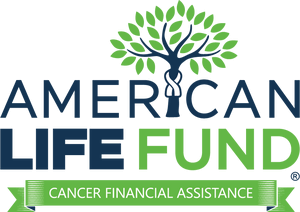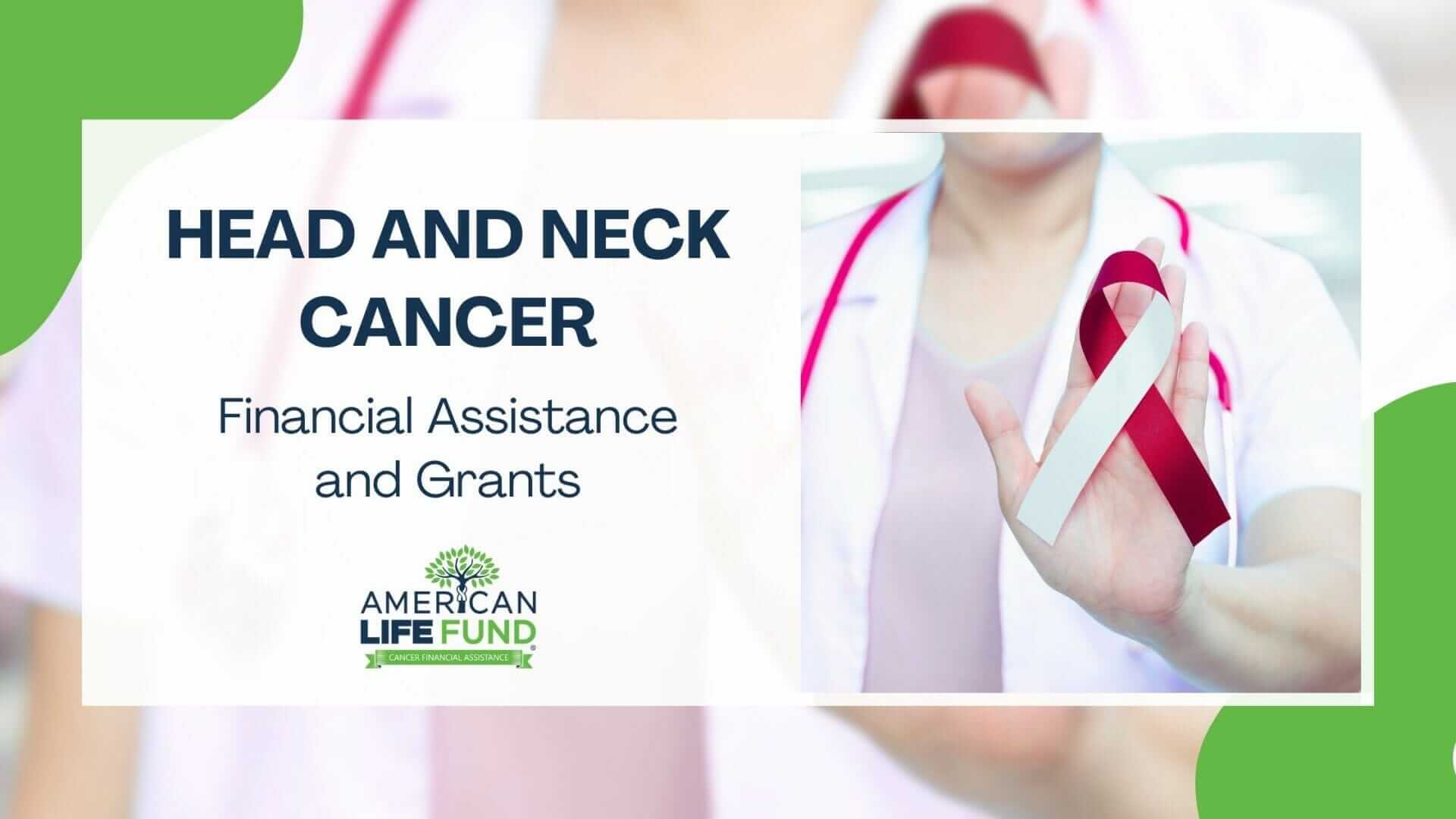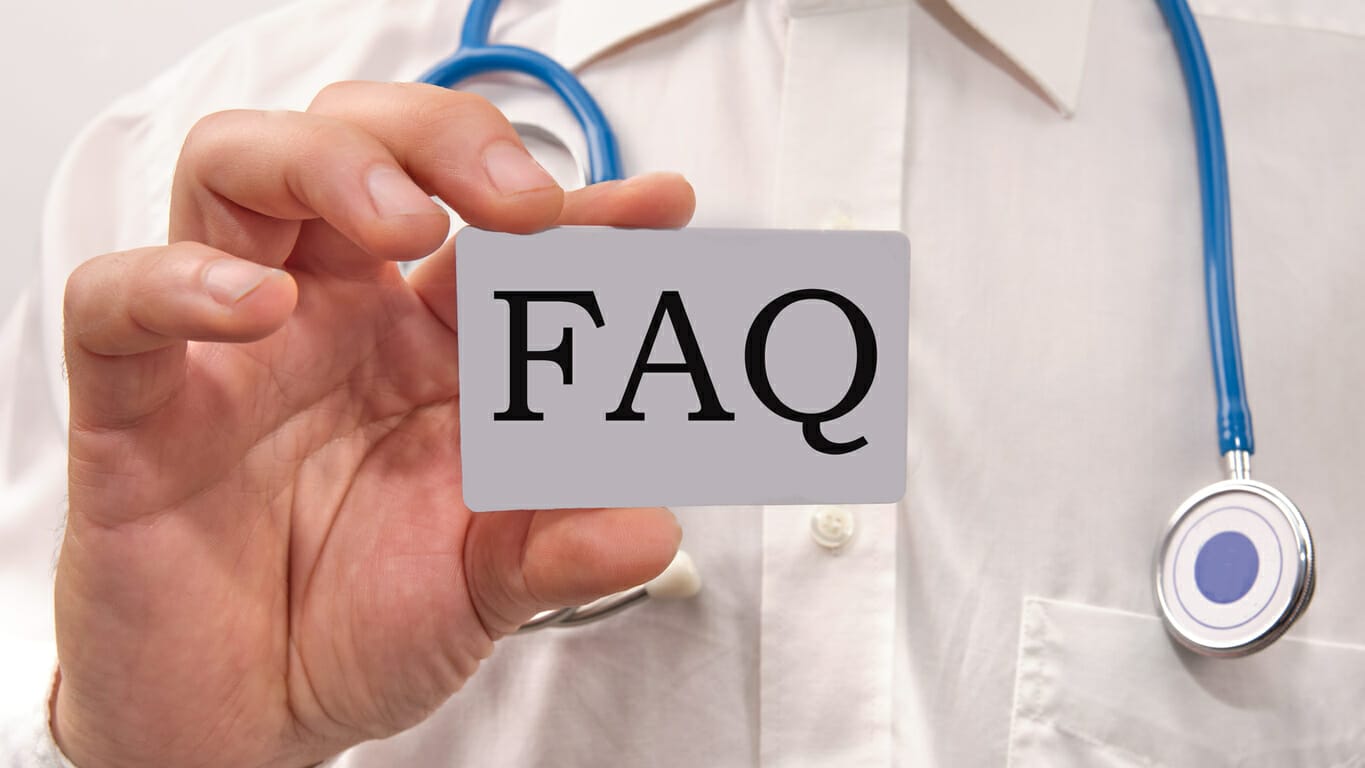Head and neck cancer patients have several options to help with their treatment costs, including patient assistance programs that provide financial support, help with co-pays, and insurance advice.
Organizations like the Patient Advocate Foundation and the American Cancer Society offer additional aid and funding. Government programs such as Medicaid can cover many medical costs for eligible individuals, and state-specific programs provide extra support. Nonprofit organizations also offer grants and funds to cover medical expenses. For those facing financial challenges, a dedicated team is available to guide patients through these resources, ensuring financial relief and making it easier to focus on recovery.
Key Takeaways
- Head and neck cancer treatment can be costly, but help is available.
- Organizations like the Patient Advocate Foundation and American Cancer Society offer financial aid and co-pay assistance.
- Medicaid provides coverage for eligible patients, helping with treatment costs.
- Nonprofits offer grants to ease the financial burden of cancer treatment.
How To Find Financial Assistance For Head and Neck Cancer Patients
Dealing with a cancer diagnosis is undoubtedly challenging, and managing the associated financial burdens can add an extra layer of stress. We’ve streamlined the process to help you find the financial assistance you need. Below are detailed steps to guide you through accessing support:
Identify Your Needs:
Understand the specific financial challenges you are facing. Whether it’s medical bills, treatment costs, or other related expenses, a clear understanding of your needs will guide you toward the most relevant assistance programs.
Patient Assistance Programs:
Explore patient assistance programs tailored for head and neck cancer patients. These programs often offer direct financial aid, co-pay relief, and other resources to alleviate the financial strain associated with medical treatments.
Organization Partnerships:
Take advantage of our partnerships with esteemed organizations such as the Patient Advocate Foundation and the American Cancer Society. These collaborations open doors to various support services and limited financial assistance.
Government Programs:
Investigate government programs designed to assist individuals facing serious illnesses. These programs may provide additional avenues for financial relief, including coverage for medical expenses and prescription drugs.
Nonprofit Organizations:
Reach out to nonprofit organizations dedicated to supporting cancer patients. Many of these organizations offer financial assistance, emotional support, and valuable resources to help you navigate the challenges of head and neck cancer.
Insurance Coverage Review:
Assess your health insurance coverage and explore options for reimbursement. Understanding your insurance benefits can help you maximize your coverage and minimize out-of-pocket expenses.
Local Resources:
Check your local telephone directory for resources and organizations in your community that may provide financial assistance or support services for cancer patients.
Reach Out for Guidance:
Don’t hesitate to contact our dedicated team for guidance. We are here to assist you in navigating the various options, answering your questions, and helping you access the financial support you need.
Financial Education Opportunities:
Take advantage of financial education programs offered by reputable organizations. These programs can equip you with the knowledge and tools to manage your finances during and after cancer treatment.
Remember, you’re not alone on this journey. By following these steps and exploring the available resources, you can find the financial assistance needed to focus on your health and well-being.
Head and Neck Cancer-Specific Financial Grants From Organizations
When facing head and neck cancer, accessing specific financial grants from dedicated organizations can provide substantial relief. Explore the following organizations that offer direct financial assistance tailored for head and neck cancer patients, along with details on how to get in touch:
Patient Advocate Foundation (PAF):
- Patient financial aid co-pay relief programs.
- Contact: Visit Patient Advocate Foundation.
American Cancer Society (ACS):
- Financial assistance programs, prescription drug coverage.
- Contact: Reach out to American Cancer Society.
CancerCare:
- Financial assistance for cancer-related costs.
- Contact: Visit CancerCare.
Patient Access Network Foundation (PAN Foundation):
- Co-pay assistance for cancer patients.
- Contact: Explore PAN Foundation.
HealthWell Foundation:
- Assistance with out-of-pocket medical expenses.
- Contact: Visit HealthWell Foundation.
Leukemia & Lymphoma Society (LLS):
- Financial aid for blood cancer patients.
- Contact: Explore LLS Financial Support.
National Brain Tumor Society (NBTS):
- Support for brain cancer patients.
- Contact: Visit the National Brain Tumor Society.
Cancer Financial Assistance Coalition (CFAC):
- Collaborative resources for cancer patients.
- Contact: Explore CFAC for comprehensive information.
The SAMFund:
- Financial support for young adult cancer survivors.
- Contact: Visit The SAMFund for details.
Government Financial Assistance Programs
Government financial assistance programs play a crucial role in providing support to individuals facing head and neck cancer. Explore the following programs designed to alleviate the financial burden associated with medical expenses. Here’s an overview of government assistance:
Medicaid:
- Comprehensive health coverage for eligible low-income individuals.
- How to Apply: Visit the Medicaid website to check eligibility and apply.
Supplemental Security Income (SSI):
- Financial assistance for disabled individuals with limited income.
- How to Apply: Apply online through the Social Security Administration website.
Social Security Disability Insurance (SSDI):
- Financial support for individuals with disabilities.
- How to Apply: Apply through the Social Security Administration website.
Temporary Assistance for Needy Families (TANF):
- Financial assistance for families in need.
- How to Apply: Contact your state’s TANF office for application details.
State-Based Assistance Programs:
- Varied state programs offer financial aid for medical expenses.
- How to Apply: Explore your state’s official website or contact local health departments for information.
Children’s Health Insurance Program (CHIP):
- Health coverage for children in low-income families.
- How to Apply: Visit Insure Kids Now for eligibility details and application.
Veterans Affairs (VA) Health Care:
- Program Focus: Health care services for eligible veterans.
- How to Apply: Enroll through the VA Health Care website.
Housing Financial Assistance
Maintaining stable housing is vital during head and neck cancer treatment. Explore housing financial assistance programs designed to provide support and alleviate the burden of accommodation costs. Below are key programs to consider along with details on how to access housing assistance:
HUD Section 8 Housing Choice Voucher Program:
- Rental assistance for eligible low-income individuals and families.
- How to Apply: Contact your local Public Housing Agency (PHA) to apply.
Low-Income Home Energy Assistance Program (LIHEAP):
- Financial aid for energy bills, including heating or cooling costs.
- How to Apply: Apply through your state’s designated LIHEAP office.
Homelessness Prevention and Rapid Re-Housing Program (HPRP):
- Preventing homelessness or providing rapid re-housing.
- How to Apply: Contact your local Homeless Prevention and Rapid Re-Housing Program for assistance.
Temporary Housing Assistance:
- Short-term housing solutions during treatment.
- How to Apply: Connect with local shelters, charities, or nonprofits offering temporary housing assistance.
Local Housing Assistance Programs:
- Local housing authorities provide varied programs.
- How to Apply: Explore your city or county’s official website for information or contact local housing agencies.
Emergency Shelter Grants (ESG):
- Emergency shelter and essential services for the homeless.
- How to Apply: Ask your local Continuum of Care regarding ESG assistance.
Cancer-Specific Housing Assistance Organizations:
- Targeted housing support for cancer patients.
- How to Apply: Reach out to organizations like the American Cancer Society for housing-related resources.
Transportation Assistance
When dealing with head and neck cancer, reliable transportation to medical appointments is crucial. Explore the following transportation assistance programs for individuals undergoing head and neck cancer treatment. Learn how to access support tailored to your unique transportation needs:
Road to Recovery (American Cancer Society):
- Volunteer-based transportation to cancer-related medical appointments.
- How to Apply: Contact the American Cancer Society for information on the Road to Recovery program.
CancerCare’s Free Transportation Program:
- Financial assistance and coordination of transportation for cancer patients.
- How to Apply: Contact CancerCare for details on their transportation support services.
Patient Advocate Foundation’s Transportation Financial Aid:
- Financial assistance for transportation to medical appointments.
- How to Apply: Visit Patient Advocate Foundation for information on transportation financial aid.
Financial Assistance For Child And Elder Care
Balancing head and neck cancer treatment with child and elder care responsibilities can be daunting. Find specialized financial assistance programs tailored to ease the financial strain of caring for your loved ones during this challenging time:
Child Care Aware:
- Financial aid and resources specifically for child care during medical treatment.
- How to Apply: Connect with Child Care Aware for information on child care financial assistance.
Eldercare Locator:
- Programs offering financial support and resources for elder care.
- How to Apply: Contact Eldercare Locator for information on elder care assistance.
Prescription & Treatment Assistance
Access to necessary medications and treatments is essential during head and neck cancer care. Explore the following prescription and treatment assistance programs designed to alleviate the financial burden associated with healthcare expenses. Learn how to access support for your prescription and treatment needs:
Patient Access Network Foundation (PAN Foundation):
- Financial aid for out-of-pocket costs related to prescription medications.
- How to Apply: Explore PAN Foundation for information on prescription assistance.
NeedyMeds:
- Comprehensive information on prescription assistance programs and patient assistance programs (PAPs).
- How to Apply: Visit NeedyMeds for details on available assistance programs.
Partnership for Prescription Assistance (PPA):
- Centralized resource for accessing pharmaceutical patient assistance programs.
- How to Apply: Explore PPA for information on available prescription assistance programs.
Good Days:
- Support for individuals with chronic or life-altering conditions, including assistance with treatment costs.
- How to Apply: Visit Good Days for information on available assistance.
HealthWell Foundation:
- Financial aid for eligible individuals to cover a range of medical expenses, including prescription costs.
- How to Apply: Explore HealthWell Foundation for details on available assistance programs.
RxAssist:
- A comprehensive directory of patient assistance programs offering information on prescription assistance.
- How to Apply: Visit RxAssist for information on available assistance programs.
CancerCare’s Co-Payment Assistance Foundation:
- Financial aid for co-payments related to cancer treatments, including prescription drugs.
- How to Apply: Reach out to CancerCare for information on co-payment assistance.
National Comprehensive Cancer Network (NCCN):
- Resources and information on assistance programs for cancer patients, including prescription support.
- How to Apply: Explore NCCN for details on available resources.
Clinical Trials
Engaging in clinical trials can provide access to innovative and potentially groundbreaking treatments for head and neck cancer. Explore the following resources and organizations facilitating participation in clinical trials:
National Cancer Institute (NCI):
- A comprehensive database of cancer clinical trials supported by the NCI.
- How to Explore Trials: Visit the NCI Clinical Trials Search for information on available trials.
American Cancer Society (ACS):
- Resources and guidance on finding and understanding cancer clinical trials.
- How to Explore Trials: Visit the ACS Clinical Trials webpage for information and guidance.
National Comprehensive Cancer Network (NCCN):
- Guidelines and resources on cancer treatment, including information on clinical trials.
- How to Explore Trials: Access the NCCN Clinical Trials section for relevant information.
Cancer Research Institute (CRI):
- Insights into cancer immunotherapy and available clinical trials.
- How to Explore Trials: Visit the CRI Clinical Trials page for information on immunotherapy trials.
National Institutes of Health (NIH):
- Various NIH institutes conduct and support clinical research, including cancer trials.
- How to Explore Trials: Access the NIH Clinical Research Trials database for information.
Head and Neck Cancer Alliance:
- Resources and support for individuals facing head and neck cancer, including information on clinical trials.
- How to Explore Trials: Visit the Head and Neck Cancer Alliance for resources and trial information.
Life Insurance:
When facing head and neck cancer, understanding life insurance options becomes crucial. Here’s a comprehensive overview to help you navigate life insurance considerations during this challenging time:
Life Settlements
- Life settlements involve selling an existing life insurance policy to a third party for a lump sum payment.
- Considerations: Evaluate a life settlement’s potential financial benefits and implications based on your current needs.
Viatical Settlements
- A viatical settlement is a financial arrangement where a person with a life-threatening illness can sell their life insurance policy to a third party for a lump sum of cash that is typically less than the policy’s death benefit but more than its cash surrender value. This option is designed for those who need immediate financial resources, perhaps to cover medical expenses or improve their quality of life during their remaining time.
- Considerations: Explore viatical settlements for their potential to provide critical financial assistance during your lifetime.
Factors to Consider:
- Health Status: Assess your current health status and prognosis to determine the most suitable life insurance option.
- Financial Needs: Consider immediate needs, including medical expenses, treatments, and other pressing concerns.
- Policy Review: Regularly review your existing life insurance policies to ensure they align with your evolving needs.
Getting Started:
- Consultation: If considering viatical settlements, schedule a consultation with American Life Fund to understand the process and explore available options.
- Expert Guidance: Seek guidance from financial advisors and experts to make informed decisions about your life insurance choices.
Fundraising And Crowdsourcing
Navigating head and neck cancer comes with financial challenges, but the power of online platforms can provide meaningful support. Explore these specific fundraising and crowdsourcing platforms tailored to assist during your journey:
CaringBridge:
- CaringBridge is a dedicated platform for creating personal health journey pages, facilitating updates, and fundraising support.
- How to Use: Create your personalized page on CaringBridge to share your story and initiate a fundraising campaign.
GoFundMe:
- GoFundMe is a widely used crowdfunding platform suitable for medical expenses, treatments, and related costs.
- How to Use: Launch your campaign on GoFundMe to reach a broad audience and garner financial support.
YouCaring (Now Indiegogo):
- YouCaring, now a part of Indiegogo, is a crowdfunding platform known for its fee-free fundraising model.
- How to Use: Explore Indiegogo for creating and managing your crowdfunding campaign.
GiveForward:
- GiveForward specializes in medical crowdfunding, helping individuals raise funds for healthcare-related needs.
- How to Use: Visit GiveForward to set up a campaign for medical expenses and treatments.
Fundly:
- Fundly is a social fundraising platform suitable for various causes, including medical needs and cancer support.
- How to Use: Utilize Fundly to create a visually appealing campaign and engage your social network.
RallyUp:
- RallyUp provides customizable fundraising solutions, offering features like online auctions and events.
- How to Use: Explore RallyUp to create tailored fundraising campaigns with diverse engagement options.
StartSomeGood:
- StartSomeGood is a crowdfunding platform designed for projects with a social impact, making it suitable for health-related campaigns.
- How to Use: Visit StartSomeGood to initiate a campaign that aligns with your health and cancer support goals.
Mightycause:
- Mightycause is a fundraising platform supporting nonprofits and individual fundraisers, offering a variety of tools.
- How to Use: Explore Mightycause to set up a campaign and benefit from its nonprofit-oriented features.
College Scholarships
If you or a family member is dealing with head and neck cancer, various college scholarships aim to support educational aspirations. Explore specific scholarships tailored to individuals affected by head and neck cancer:
Patient Advocate Foundation’s Scholarships:
- Available to individuals who have been diagnosed with cancer, including head cancer, or are currently undergoing treatment.
- Application Process: Visit Patient Advocate Foundation Scholarships for details on eligibility criteria and application procedures.
The Susan G. Komen Foundation College Scholarship Program:
- Geared towards students whose lives have been impacted by breast cancer, including family members dealing with head and neck cancer.
- Application Details: Explore Susan G. Komen Scholarships for information on eligibility and the application process.
The Cancer for College Scholarship:
- Available to cancer survivors or current patients, including those affected by head and neck cancer, pursuing higher education.
- Application Process: Learn more about Cancer for College Scholarships and how to apply for financial assistance.
The American Cancer Society’s Cancer Survivors Fund:
- Open to cancer survivors, including those with head and neck cancer, pursuing higher education.
- Application Details: Visit the Cancer Survivors Fund for information on eligibility and the application process.
The Ulman Foundation’s Cancer to 5K Scholarship:
- Geared towards individuals impacted by cancer, including family members, and supported their pursuit of education.
- How to Apply: Explore Ulman Foundation Scholarships for information on eligibility and scholarship opportunities.
The National Collegiate Cancer Foundation Scholarship:
- Available to cancer survivors, including those with head and neck cancer, pursuing higher education.
- Application Process: Visit the National Collegiate Cancer Foundation for scholarship details and application procedures.
The Samfund for Young Adult Survivors of Cancer:
- Geared towards young adults affected by cancer, offering financial assistance for education and career goals.
- Application Details: Explore The Samfund Scholarships for information on eligibility and application requirements.
The LIVESTRONG Foundation Scholarship Program:
- Available to individuals affected by cancer, offering financial support for education-related expenses.
- Application Process: Visit LIVESTRONG Scholarships for details on eligibility and the application process.
Financial Expectations For Head and Neck Cancer Patients
Who To Contact For Head and Neck Cancer Financial Assistance
Contact organizations like the Patient Advocate Foundation and CancerCare for personalized guidance on available financial assistance programs.
What Benefits Are Head and Neck Cancer Patients Entitled To?
Explore potential benefits such as disability benefits, Medicaid, and Social Security Disability Insurance (SSDI). Contact the Social Security Administration for eligibility and application details.
Are There Any Free Items Or Gift Boxes For Head and Neck Cancer Patients?
Connect with organizations like Cancer Care Parcel and Hope Box, which offer free items and gift boxes tailored to cancer patients.
Does Stage 4 Head and Neck Cancer Qualify For Disability?
Stage 4 head and neck cancer may qualify for disability benefits. Consult with the Social Security Administration and your healthcare team to assess eligibility and initiate the application process.
Navigating the financial landscape during head and neck cancer requires understanding available resources and seeking support from relevant organizations. Our team is here to guide you if you have specific questions or need personalized assistance.







